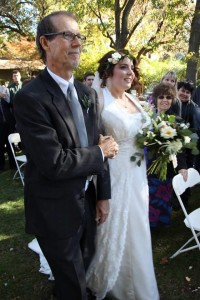The term reasonable and prudent measured Montana’s legal highway speed for years. Absent a daytime speed limit, drivers simply focused on the road ahead. Rather than radar-fitted patrol cars – or their own speedometers. Some motorists argue that Big Sky highways were safer in those earlier times – when reasonable and prudent described people themselves – not just speed laws. My small-engine motorcycle threatened neither Montana nor Wyoming law enforcement of the ‘60s.
Crossing railway tracks at the south edge of Laurel, Montana, brought me within twenty miles of my destination. Funny how our senses usher us to times and locations. And memories. With its oil refinery, Laurel’s sights and smells wakened feelings of another place. From the highway entering Tulsa we saw refineries layer the atmosphere in smoke plumes. Spreading their billows adrift – like a giant bedcovering flung from a housekeeper’s invisible hands. Near the highway white storage tanks shadowed a larger-than-life sign. Boldly declaring, Tulsa, Oklahoma – Oil Capital of the World.
Well, it’s Sunday morning in Montana. If the Creason family is around, in a few minutes they’re likely entering a church. Somewhere.
Downtown Billings was quiet. The abrasive air began to mellow as the sun made its upward climb. Leaving the parked Honda, I entered an upscale hotel and surveyed the lobby. There were two mahogany phone booths, side by side – neither of them occupied. It wasn’t a telephone I sought. I flipped through the directory to the Yellow Pages.
C-h-u-. . There it was. Churches. Hmm. Even for a city of sixty thousand, this seemed a lot of churches.
Let’s see. . . Non-denominational. If the Creasons are not away, they’re probably, maybe. Beneath the category the tip of my forefinger glided downward. Plenty of listings here, too.
A ballpoint, attached to a thin chain, lay close at hand. Resting my finger at a random name I copied the church and its address. It didn’t occur to me to copy any of the others.
Absent the aid of a city map I directed my bike down a side street just beyond the hotel. After two or three turns, within a few blocks I was at the street I sought. Minutes after leaving the phone booth I spotted the church sign, Tabernacle of Faith. I tipped the open end of my left glove. My watch read nine forty-five.
An outer church stairway led me up to the entrance. The warmth of the sanctuary enveloped me and I paused to take in the room and scan the few early arrivals. Drawing a long breath I smiled broadly.
Erica Creason – Fred ‘s war bride (as the era designated her) – spotted me. Her German accent traversed the sanctuary. Fred! Boys.
Erica remained astonished. Her eyes glistened. Look. It is Jerry Lout!
The foursome descended on me. Exclamations punctuated our laughter as we hugged.
Pretty amazing, I thought. The first place to look. And here they are. The Creasons. Wow.
Our mini-reunion quieted as piano music signaled an opening hymn. Taking up a red song book I fingered the graphic. Three gilded crosses. The corners of my mouth turned upward. Melodies of Praise. Throughout worship I felt closeness. Close to friends, close to others in the room – even the strangers. I felt close in our common purpose to gather in this place. To worship the Lord, to grow in our faith. What church is about, I thought. Following the morning sermon, the Creasons brought me to the preacher.
Brother Barnes, we want to introduce you to Jerry Lout. He’s a friend from Oklahoma, from our church body there.
Pastor Earl Barnes, a gregarious personality, smiled. He welcomed me, then signaled his family. I recognized the approaching woman as the organist. She carried herself with grace. Her smile was full, sincere.
Jerry, this is my wife, Mary, and our three children.
I nodded. He indicated their two boys. Our sons here are Jonathan and David. And this is their sister.
The pretty fifteen-year-old stood relaxed but poised. She held a scarf and woolen cap. Across an arm draped a winter coat that would soon conceal the light blue sweater she wore. Her name was Alice. Her blond hair framed a face as attractive as any I had ever seen and I risked an extra second to study it. Her eyes especially drew me. I forced myself to shift my gaze from their symmetry and beauty. I turned to acknowledge again her mother and father.
The girl’s first name was Alice. But she went by her middle name.
Ann.
©2015 Jerry Lout


